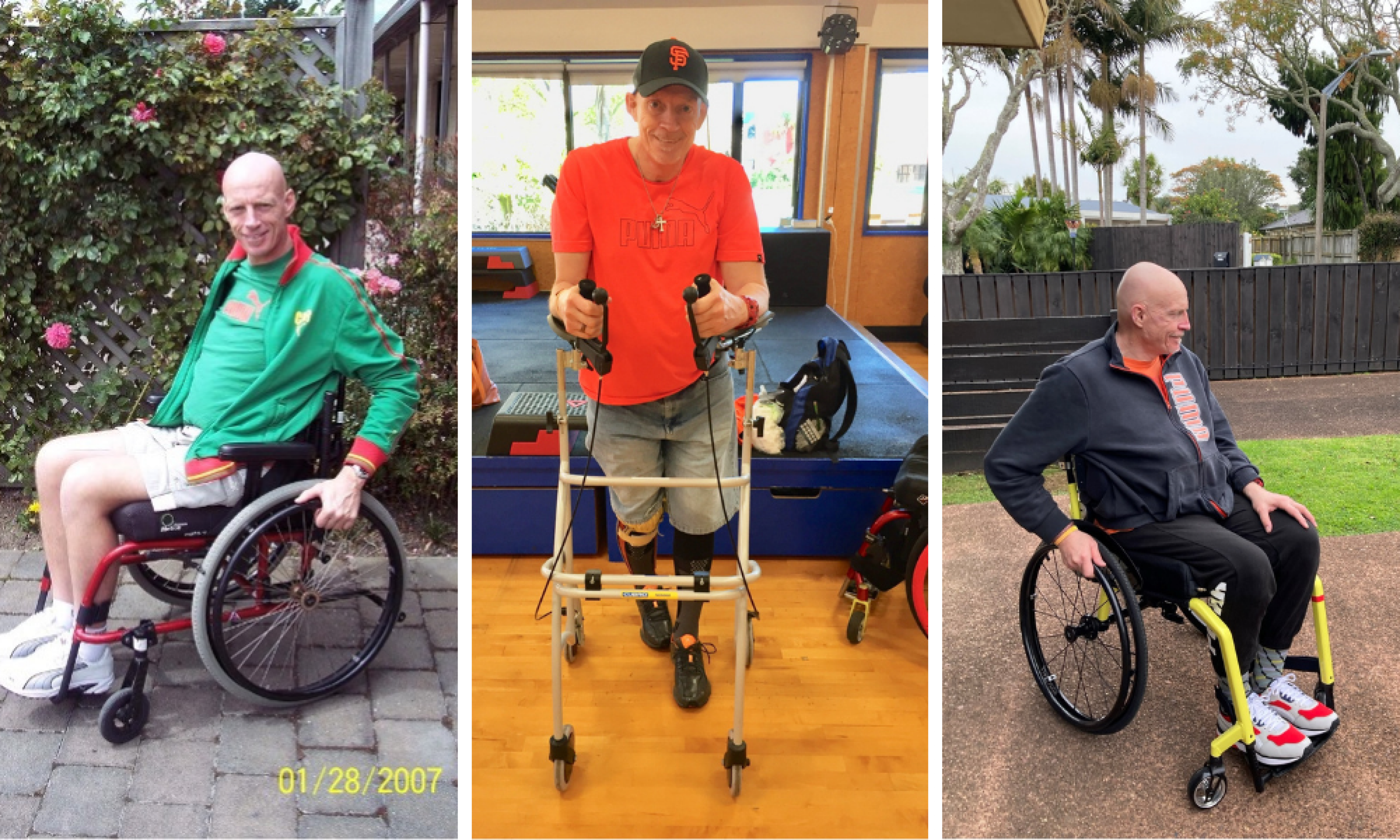HOW IS THIS FAIR? – A blog about the NZ Government’s support for people who sustain Spinal Cord Injury (SCI) – by Ian Walker

Kia ora/hey everybody!
Nga mihi o Te Tau Hou/Happy New Year!
In this blog I would like to pose the question, how is this fair? The question is in relation to the trifecta of NZ Government departments that provide aid and support for those of us who have sustained a Spinal Cord Injury either through serious injury or illness. These three departments are the Accident Compensation Corporation (ACC), the Ministry of Health (MOH) and the Ministry of Disabled Persons (MDP).
- On ACC’s website, they say, We help prevent injuries and get New Zealanders and visitors back to everyday life if they’ve had an accident.
- On the MOH’s website under Disability Services it says, The Ministry’s aim is that disabled people and their families are supported to live the lives they choose.
- On the MDP website they say, More choices, control over the life you want to lead. We’re working with the disabled community to deliver change and give you more decision-making control around the support you need.
From the above mission statements, one would believe that the services available for disabled persons are wide-ranging and firmly in place. Nothing could be further from the truth. There is a distinct two-tier support system here in Aotearoa/New Zealand that is totally dependent on what caused your SCI.
In my case, I come under ACC’s Serious Injury Unit as I sustained two SCIs due to accidents involving cycling and handcycling respectively. I have a specified Recovery Partner from ACC who oversees my needs, care and support, all funded by ACC. After my first SCI in 2006, my treatment and rehabilitation were governed by The Accident Compensation Act. I was duly sent to the Burwood Spinal Unit (BSU), in Christchurch for recovery and rehabilitation. I was an in-patient for approximately 6 months as all efforts were made to improve my SCI in an attempt to get me back on my feet. Alas, this didn’t eventuate, and I was discharged as a T3/4 mid-thoracic paraplegic. All costs involved with my time at BSU were covered by ACC, including trialling three different brands of wheelchairs and settling on one.
While at BSU it became apparent to me that other in-patients were not supplied with the same level of care and support as I and other accident-related SCI in-patients were. These in-patients had illness-related SCIs, such as spinal strokes, spinal cists, MS and so on. Their costs were covered by MOH which is where any fair comparison ended. For example, one guy could only be supplied with a second-hand wheelchair as his budget wasn’t high enough for him to obtain a new one, they weren’t afforded the same number of gym/physio hours as I was either. They were in all respects seen as second-class in-patients costs-wise because the level of treatment they were given was of the same exemplary standard I received.
I purchased a house that required extensive alterations to make it truly accessible. This included wooden ramps to front and back doors, a remodelled bathroom, toilet and laundry combined into one wet floor area and a completely new accessible kitchen. Outside, new concrete paths were laid including the area below the carport. ACC bore all costs for the architectural design and construction work at no cost to me whatsoever. I knew of an elderly female in-patient who had sustained a spinal stroke leaving her unable to walk any distance. The modifications authorised by MOH became a constant headache for her as there were limitations to the modifications to her toilet and bathroom, with a ramp provided to the front door only at a scale vastly inferior to what I had received.
I constantly ask myself “How is this fair?” Just as I sustained my SCI due to a set of incidents I had no choice in, my cycling and handcycling accidents, neither does someone who has the terrible misfortune, through no choice by them, to sustain an illness or medical condition sustain a SCI. Yet they do not qualify for the same level of fully funded care and support that I benefit from. I can qualify for a Training for Independence (T.I.) where I endeavour to improve on my ability to stand, albeit with a KAFO encasing my right leg while my left leg can step I am unable to weight bear on it. As such, I utilise a gutter frame, funded by ACC, to perform my Gutter Frame Shuffle. Someone under MOH cannot obtain the same funding level as me to improve their condition.
There is research currently underway to ascertain the true disparity between ACC and MOH funding availability to bolster efforts to equate the same level of funding available to those SCI persons who come under both ACC and MOH. In my opinion, this change cannot come soon enough, especially when one reads the mission statements of the ACC, MOH and MDP. If disabled, everything that can assist you to live your life as you choose to fund should be made to achieve this regardless of how your SCI was sustained.
‘Reminder:
Your attitude determines your happiness, not your circumstances’.
About the author
Ian Walker is a C6 Quadriplegic Incomplete. Ian lives in Christchurch, New Zealand and has survived 2 separate spinal cord injury-related accidents over the past 14 years. He is a Motivational Speaker who talks about - how to face adversity, cycle road safety, living with a disability, and being a 1 percenter . . .
Ian also enjoys life coaching which he utilises through his business BMotiv8d, to assist those with a disability, (or without), who lack motivation, direction and/or confidence, those who feel disorganised or unfulfilled, and/or those who need encouragement or need to set priorities, on how to realise their true potential.

Add comment